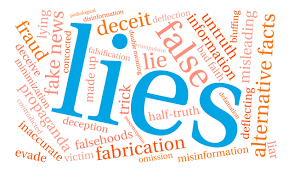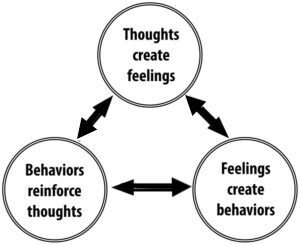A person who tells lies compulsively, for no apparent reason is known as a compulsive liar. They tell lies that are not even necessary or helpful to them in any way. Compulsive lying is often considered pathological behavior and can be caused by many different issues such as bipolar disorder, anti-social personality disorders, psychosis, among others. Those with this condition lie so much that they eventually lose all credibility and their lies become transparent to those around them. It’s important to note the difference between “white” lies (which are harmless) and “black” lies (harmful). This article will discuss how you can diagnose someone with compulsive lying behavior and what treatment options are available if needed!
Contents
- 1 What Is Lying?
- 1.1 Understanding Compulsive Lying
- 1.2 Who Is A Compulsive Liar?
- 1.3 Causes of Compulsive Lying
- 1.4 Signs Of Compulsive Lying
- 1.5 Negative Impact Of Being A Compulsive Liar
- 1.6 Treatment Of Compulsive Lying
- 1.7 Tips To Getting Rid Of This Habit
- 1.8 Consequences Of Being A Compulsive Liar
- 1.9 Helping Someone Who Is A Compulsive Liar
- 2 Conclusion
What Is Lying?
Lying is defined as the intentional act of stating something untrue. It can be done verbally or in writing, and it can be a statement about oneself or another person. Lying is often done to protect oneself or to get what one wants from others.
Understanding Compulsive Lying
Compulsive lying is a type of pathological lying. It is a chronic condition that causes the person to lie even when there is no real need to do so. The lies are often outrageous and impossible to believe, but the liar still insists they are true. compulsive liars compulsively lie to create a false sense of self-image or build up their ego.
They may also lie to cover up mistakes or conceal information that could damage their reputation.
Compulsive lying can be very damaging to relationships, both personal and professional. It can be difficult for others to trust someone who has a history of compulsive lying.
Who Is A Compulsive Liar?
Compulsive liars are people who lie compulsively, or habitually. This means that they tell lies even when there is no real need to do so. The lies are often outrageous and impossible to believe, but the liar still insists they are true.
Most compulsive liars are not pathological liars. Pathological lying is a type of mental health problem. It can cause serious problems in your life, both socially and personally.
Causes of Compulsive Lying
There is no one definitive cause of compulsive lying. Some possible causes include:
Brain injury or damage
Some types of brain injuries can cause compulsive lying. Some people might lie compulsively when they feel worthless or inadequate. Issues like schizophrenia or bipolar disorder may also bring on compulsive lying as a symptom.
Mental health conditions
People with personality disorders, such as antisocial personality disorder, are more likely to lie than the general population. They do not feel empathy for other people. They often use that to their advantage by manipulating people into doing things that benefit them. This is sometimes referred to as pseudologia fantastica. Other mental health issues that can happen when someone lies a lot are borderline personality disorder, histrionic personality disorder, narcissistic personality disorder, and schizotypal personality disorder. These four personalities share common qualities like fear of abandonment, self-dramatization, and impulsivity.
Family environment
People who are raised in an environment where lying is acceptable may be more likely to lie than other people as adults. It can be hard for parents to cause their children to lie compulsively unless they also had some sort of mental illness. Maybe the family life made someone lie a lot. They might have even lied a lot as a toddler. That might lead to being a compulsive liar later in life.
Sexual and substance abuse
Some types of sexual abuse can lead children to lie about what happened to protect their abuser(s). This type of situation often causes feelings of guilt and shame for “allowing” something bad to happen. The abuser makes them feel like it’s their fault if they tell anyone. People who experienced traumatic events during childhood may also be at risk for developing compulsive lying problems. These things might include neglect or abuse, the loss of a parent through divorce or death, and/or seeing violence at home as a child. Alcohol and drug abuse can also lead to compulsive lying. People might lie about drugs or drinking. They might lie to cover up their addiction, and they might also use lies to try and get money or drugs from other people.
Signs Of Compulsive Lying
Compulsive liars are not always easy to recognize because they often believe their lies. They won’t show any signs of anxiety when telling them and will simply act like what they’re saying is true. However, some behaviors might give away someone’s habit of lying compulsively:
- They tell many different types of stories about themselves with different people
- They have difficulty staying focused when they’re talking
- Their stories often don’t make sense
- They get defensive or angry if someone questions them about their stories
Negative Impact Of Being A Compulsive Liar
This is a problem with many consequences. If you lie about things, it can be hard to maintain real relationships because people will question your honesty and integrity. It might also affect your job if you lie on an application or resume. It would make problems. If you lie a lot, it doesn’t build trust with your friends and family. It also makes problems at work because people will start to question what else is false or exaggerated on your resume.
Treatment Of Compulsive Lying
Compulsive lying usually isn’t treated as a mental health issue. People usually go to therapy because they have other problems like anxiety, depression, or borderline personality disorder. A therapist may work on thoughts and behaviors first before they work on getting rid of compulsive lying. Sometimes medication helps too when someone has another type of mental illness along with their habit of compulsively lying. The therapist may also help people come up with better ways to cope when they feel like telling a lie or exaggerating something. It might be hard for someone who lies compulsively to change their behavior, but the benefits are well worth it in the long run!
There is no one-size-fits-all approach to treating compulsive lying. The treatment will vary depending on the person’s underlying causes for lying. However, some possible treatments include:
Psychotherapy
This type of therapy involves meeting with a therapist who can help you understand why you lie and how to stop. You might also learn coping skills to deal with any difficult emotions that may trigger your lying habit.
Cognitive-Behavioral Therapy
This type of therapy focuses on changing the thoughts and behaviors that contribute to compulsive lying. You might learn how to challenge your beliefs about lying, deal with difficult emotions more healthily, and build better relationships.
Behavioral therapies
There are a few different types of behavioral therapies that can help treat compulsive lying. These therapies involve gradually exposing you to situations where you would normally lie, and help you learn healthy ways to respond. This can help reduce your reliance on lies as a coping mechanism.
Medication
If you have another mental illness along with compulsive lying, medication may be prescribed to help treat both conditions. Antidepressants or anti-anxiety medication can help you deal with emotional triggers that lead to lying.
Tips To Getting Rid Of This Habit
- Talk to a therapist about why you lie and explore different ways to cope with difficult emotions.
- Challenge your beliefs about lying and find healthier ways to deal with stress or anxiety.
- Expose yourself gradually to situations where you would normally lie, and learn healthy ways to respond.
- Take medication if you have another mental illness along with compulsive lying.
- Avoid telling lies whenever possible, and be honest about your mistakes when you do mess up.
- Establish better communication habits to build trust with those around you.
- Build a support system of people who will encourage honesty from you rather than enable dishonesty.
- Think more positively about yourself and focus on your strengths.
- It can be difficult to break the habit of compulsive lying, but it’s possible with time and effort!
Consequences Of Being A Compulsive Liar
Several consequences can come from being a compulsive liar. Some of these include:
- difficulty maintaining relationships due to mistrust
- potential problems with employment if lied on resume or application
- lying becomes habitual and hard to break, causing further isolation and distress
- can lead to depression or anxiety if not treated properly.
The best way to treat compulsive lying is through therapy. This involves meeting with a therapist who will help you understand why you lie and how to stop. There are also different types of behavioral therapies that can help, which involve gradually exposing you to situations where you would normally lie. If you have another mental illness along with compulsive, medication may be prescribed as well.
Helping Someone Who Is A Compulsive Liar
You can help a compulsive liar with the help of the following methods:
- Guide them through therapy and encourage healthy coping mechanisms: If the person you know is a compulsive liar, encourage them to seek professional help. The therapist can guide them through therapy and teach them healthy coping mechanisms that will help reduce their reliance on lies.
- Encourage positive relationships: Compulsive liars often have difficulty maintaining healthy relationships due to mistrust. Encourage your loved one to build positive relationships with people who will be supportive and understanding.
- Promote honesty: It may be hard for a compulsive liar to change his behavior, but promoting honesty is essential for overall well-being. Advocate for open communication in all aspects of life, and provide support when your loved one struggles with telling the truth.
- Try to help build stronger relationships, focus on the positive aspects of life: You can try to help build stronger relationships with your loved one. You should also focus on the positive aspects of life and advocate for open communication in all areas of their lives.
- Support them through therapy: It can be hard to support someone when they are telling lies. But it is important to help them when they need you. Encourage your friend or family member to seek professional help, and encourage healthy coping mechanisms like building better relationships and focusing on positive aspects of life.
Conclusion
We all lie, but some people take it to the next level. A compulsive liar is someone who lies a lot and sometimes they do not know that they are lying. It can be hard to see your friend or family member as anything other than a wonderful person who’s never done anything wrong. But if you are worried about their behavior and want more information, we can help. Our experts can assess whether the person has a diagnosable disorder like antisocial personality disorder (ASPD) or narcissistic personality disorder (NPD). Once we know which diagnosis applies, we’ll work together to develop an appropriate treatment plan tailored specifically to them.
If you are looking for affordable Online Counseling MantraCare can help: Book a trial therapy session














